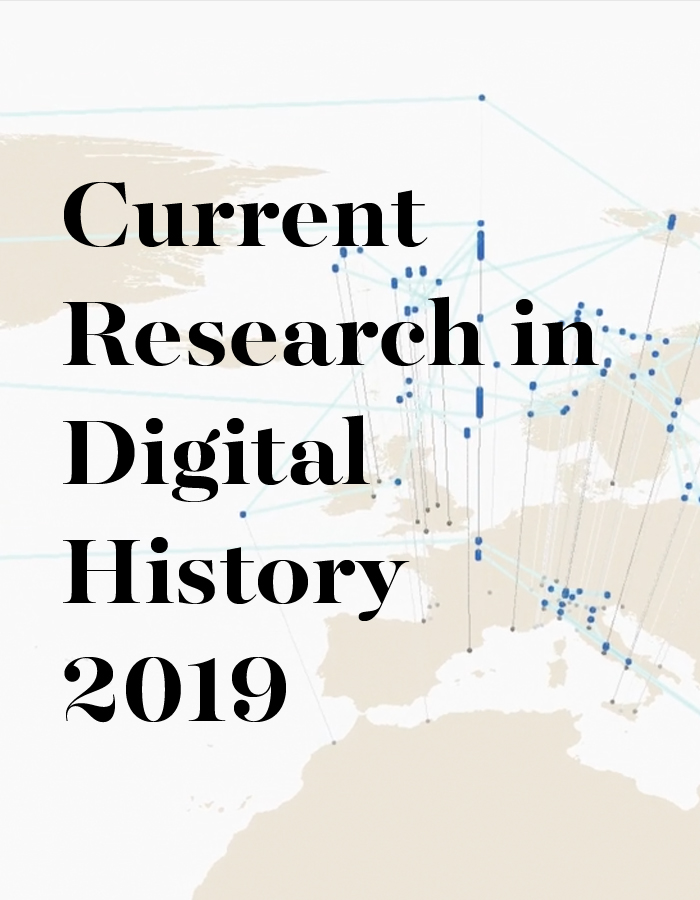
Current Research in Digital History 2019
Today RRCHNM is publishing the second annual issue of our open-access, peer-reviewed publication Current Research in Digital History. This issue features 13 essays on topics ranging from Catholic enslavers in early Maryland, women’s activism in the 1970s Black Arts Movement, and a social network analysis of the Colored Conventions, to Latter-day Saints of black-African descent, nineteenth-century postmistresses, and African American Freedom Colonies in Texas.
The issue was edited by Lincoln Mullen and Stephen Robertson, with crucial input from a program committee consisting of Elizabeth Bond, Kalani Craig, Michelle DiMeo, and Crystal Moten. Editorial Assistant Greta Swain worked throughout the summer to prepare the essays for online publication, in a platform designed by Kim Ngyuen and Ken Albers that allows for interactive visualizations, data and code appendices and other features not typically available from other humanities journals.
The primary aim of Current Research in Digital History is to encourage and publish scholarship in digital history that offers discipline-specific arguments and interpretations. By featuring short essays, it also seeks to provide an opportunity to make arguments on the basis of ongoing research in larger projects. Essays published in CRDH are first presented at an annual one-day conference at George Mason University in Arlington, Virginia. Authors submit their essays in the fall, and then the conference is held in the spring. CRDH is published at the end of August, less than a year after essays are submitted.
Please see the CFP for the 2020 conference, to be held on March 14, 2020 in Arlington, VA. Submissions for the 2020 conference and publication are due by October 25, 2019.

